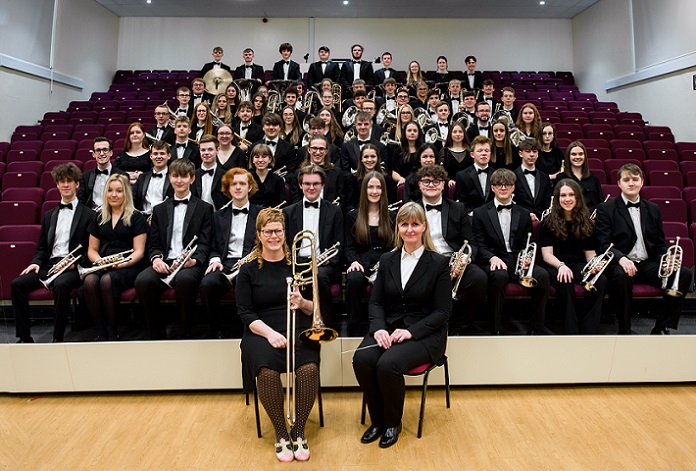
The class of Easter 2022
The current buzz-slogan of the business and arts worlds is ‘organisational culture’.
Even premiership football teams talk about its importance to their corporate identity.
Arsenal Football Club has just initiated its plan, rather un-imaginatively entitled, ‘The Arsenal Way’ - which will see an expensive consultancy firm employed to “visualise ideas, customs and social behaviour of everyone involved to create an atmosphere which will allow success to thrive.”
However, when approached as a piece of tick-box mentality it is simply PR-speak full of meaningless mission statements, directional analysis and endless aphorisms wrapped up in glossy social media presentations.
When it works though, it can transform organisations from top to bottom.
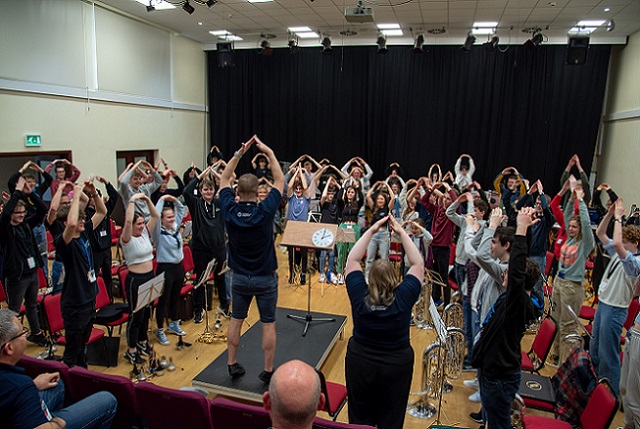
Not quite the YMCA...
Equality & Excellence
It’s nothing new. Less than a decade after the National Youth Brass Band of Great Britain was formed, Daniel Jenkins’ 1961 book ‘Equality & Excellence’ initiated a searching debate to whether greater equality of access in education would lead to a ‘levelling up’ or a ‘levelling down’ of achievement.
Those who led organisations that understood its findings, flourished. Now, some 60 years later, the debate (with the same aims) has been opened-up again – from football teams to National Portfolio arts organisations.
Those who led organisations that understood its findings, flourished. Now, some 60 years later, the debate (with the same aims) has been opened-up again – from football teams to National Portfolio arts organisations.
If Arsenal need to find an example of just how to instigate a successful ‘organisational culture’ then they could save themselves money and simply get in touch with CEO Mark Bromley and his team at the National Youth Brass Band of Great Britain.
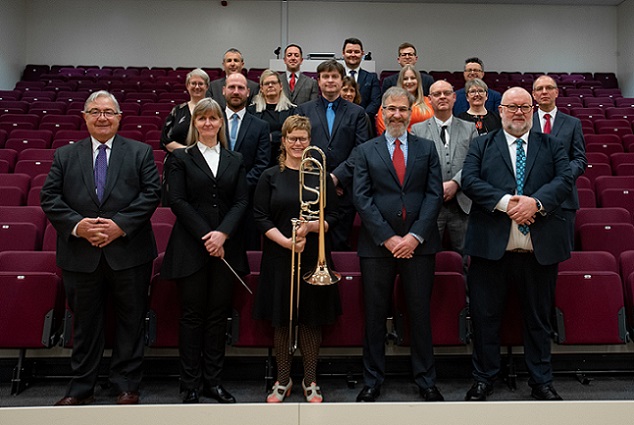
The NYBBGB team
Uplifting
In the last few years, it has tackled the issues head on. Attitudes are now governed as much by the landscape of the varied influences that affect a youngster’s ability to access musical opportunity as they are in simply celebrating musical performance.
Mark Bromley leads an organisation that fully understands the importance of inclusion and equal opportunities in achieving excellence. It is thoroughly uplifting to both see and hear in action.
The ‘culture’ of the NYBBGB is now understood by everyone involved.
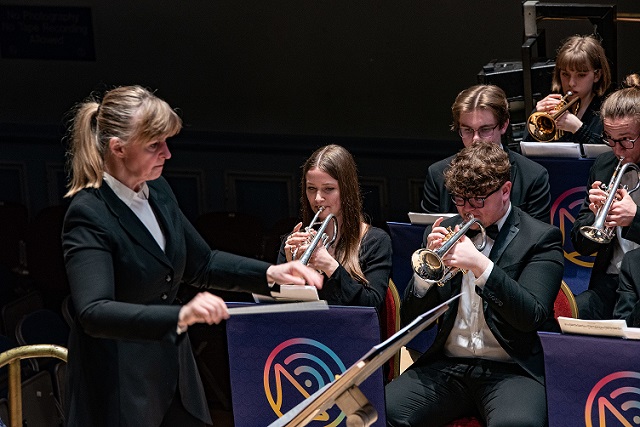
Irene Anda led the 2022 Easter Course
This 70th anniversary year Easter Course spelt that out clearly – reflecting as he said on “our history and heritage as well as looking to the future of the band and celebrating our diversity”.
A great deal of credit therefore sits at the desk of the CEO, although he himself points to the work undertaken (and not just on the course) by Director of Artistic Planning, Dr Robert Childs, Operations Manager Richard Milton, and the management team that now includes defined roles from finance and funding to audience development, social media profiling and design.
This 70th anniversary year Easter Course spelt that out clearly – reflecting as he said on “our history and heritage as well as looking to the future of the band and celebrating our diversity”.
Musical progression
It has enabled an equally progressive musical blueprint to flourish – led on this occasion by the Norwegian conductor Irene Anda with guest soloist Grethe Tonheim.
The course repertoire inspired by gender and ethnicity deftly underpinned the approach – from William Grant Still (‘In Memoriam: The Colored Soldiers Who Died for Democracy’ , Paul Saggers’ '(In Many Lands: The Adventures of Mrs Seacole’ ) and Louise Trewartha ('Flight’) to the major test-pieces of Gilbert Vinter and Peter Graham.
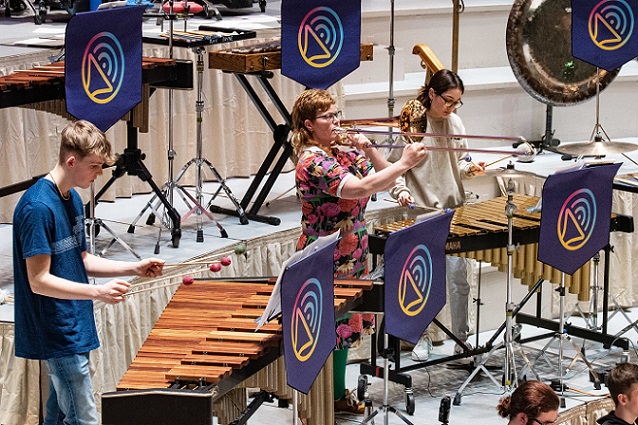
Three warm icicles
In addition, Maurice Hamers’ ‘Die Aplen’ and the eclectic triptych of chosen solos by Grethe Tonheim (from the lyrical traditionalism of ‘The Eternal Quest’ to the sublimely enigmatic ‘Icicles’) added levels of informed interest.
The course repertoire inspired by gender and ethnicity deftly underpinned the approach – from William Grant Still (‘In Memoriam: The Colored Soldiers Who Died for Democracy’ , Paul Saggers’ '(In Many Lands: The Adventures of Mrs Seacole’ ) and Louise Trewartha ('Flight’) to the major test-pieces of Gilbert Vinter and Peter Graham.
New commissions
It was also revealed that the band had commissioned two further major works to be featured on its Summer Course; ‘Hyperlink’ by Peter Graham which combines Bach, Vaughan Williams and Parry through a portal of 21st century inventive processes, and ‘En route’ by Lucy Pankhurst that celebrates the industrial heritage of the city of Birmingham.
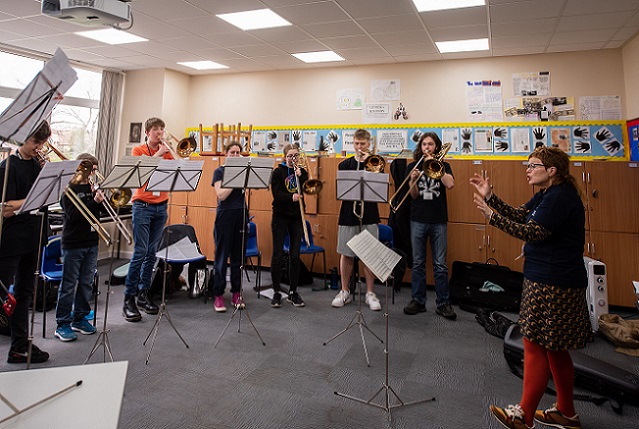
Tutoring the key
Tutors
The process of inspiring the new generation of socially aware youngsters fell on the shoulders of an informed team of tutors; Mark Wilkinson, Anna Hughes-Williams (cornets), Owen Farr (horns and flugels), David Thornton (baris and euphs), Les Neish (tubas) and Andres Price (percussion). The troms had the added incentive of working with both Brett Baker and Grethe Tonheim.
Preparing the demanding repertoire for performance was dependent on having a highly motivated group of students. The work of the tutors was enhanced greatly by their friendly, supportive approach.
This was no drill factory producing mechanical musical operatives, but a sharing of musical minds.
This was no drill factory producing mechanical musical operatives, but a sharing of musical minds.
Just over 20% of the young players were attending their first course, so an initiative that saw older players take on mentoring responsibilities was also used to great effect. Inclusivity was enhanced as was the sense of communal pride in achievement.
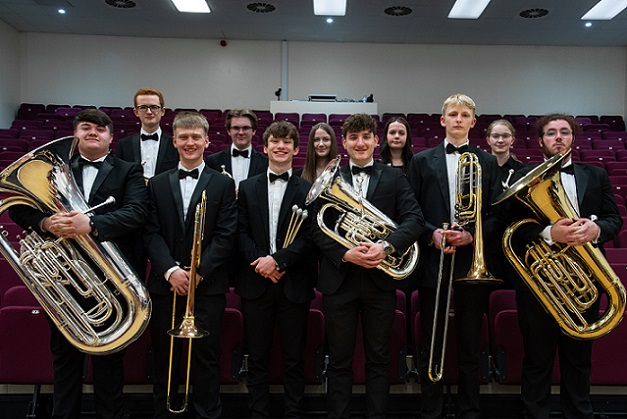
Principal smiles
Impressed visitor
Elsewhere, and with future careers in mind, an afternoon was given over to an ‘inspire’ session, in which women who had achieved success in a range of professions shared their experiences and challenges.
There was also a visit from Olivier Mauny, conductor of Brass Band Méditerranée and professor at the Antibes Conservatoire, who had been invited to spend three days observing the course.
He later said that he was particularly impressed by the impeccable attitude of the students during the rehearsals, the attention they gave to the points made by the tutors, their ability to put it into practice, and their thoroughly professional approach to their membership of the band.
He later said that he was particularly impressed by the impeccable attitude of the students during the rehearsals, the attention they gave to the points made by the tutors, their ability to put it into practice, and their thoroughly professional approach to their membership of the band.
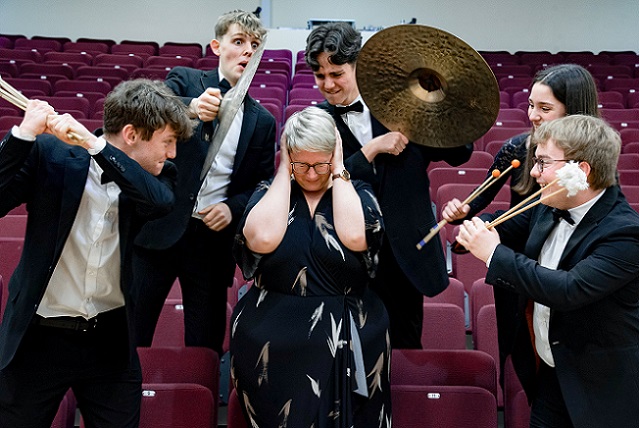
And relax...
Articulate musician
Much of that success was down to guest Musical Director Irene Anda.
A highly articulate musician with a minimalist conducting style, she asked a great deal of the performers as they worked methodically through each piece; the youngsters responding maturely to the challenges - from the impressive team of principal players to the youngest debutant.
With individual, sectional rehearsals and workshops, the players performed up to seven hours a day, whilst a smaller band of 35 players also took time out to rehearse for a further two hours with Robert Childs preparing Martin Green’s ‘Split the Air’ for a performance in Coventry Cathedral in the week following Easter.
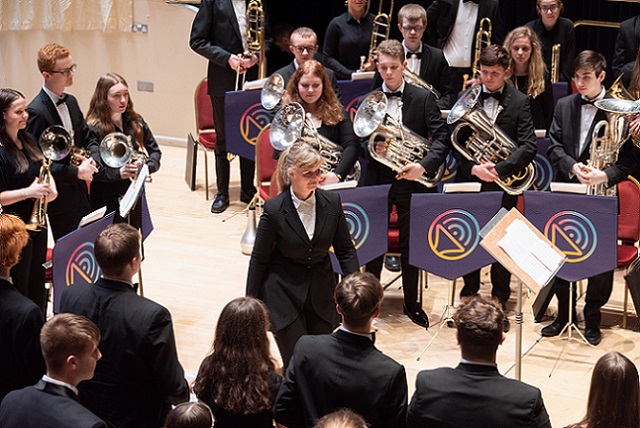
All eyes on the MD...
Embraced challenges
At a time when music is being marginalised in schools, a huge amount of credit should be directed at the National Youth Band of Great Britain.
Instead of reversing into a musical cul-de-sac of limited vision, it has embraced the challenges of the second decade of the 21st century with an informed, enlightened sense of purpose.
Instead of reversing into a musical cul-de-sac of limited vision, it has embraced the challenges of the second decade of the 21st century with an informed, enlightened sense of purpose.
It is however the start of a journey – and one that has had to make up a great deal of lost ground. The commitment to moving towards equality of access and strategies that embrace the positive effects of diversity and inclusion can only be good, not just for the organisation itself but for those who are part of it.
Bursary support, increased corporate and individual donations show that the approach is working – as was the musical aspiration at a splendid concert held at Huddersfield Town Hall.
The NYBBGB has acquired a renewed sense of purpose. It is making clear its intention of making youth brass banding relevant springs from a genuine concern for matching excellence with equality of opportunity.
It has embraced its need for an overhaul of its ‘organisational culture’ with vigour and success.
Long may it continue – and long may others follow its lead.
Roy Terry
All images in this article are copyright and cannot be used unless with express permission of the photographer
Please see: http://https://www.4barsrest.com/news/53802/national-youth-memories













